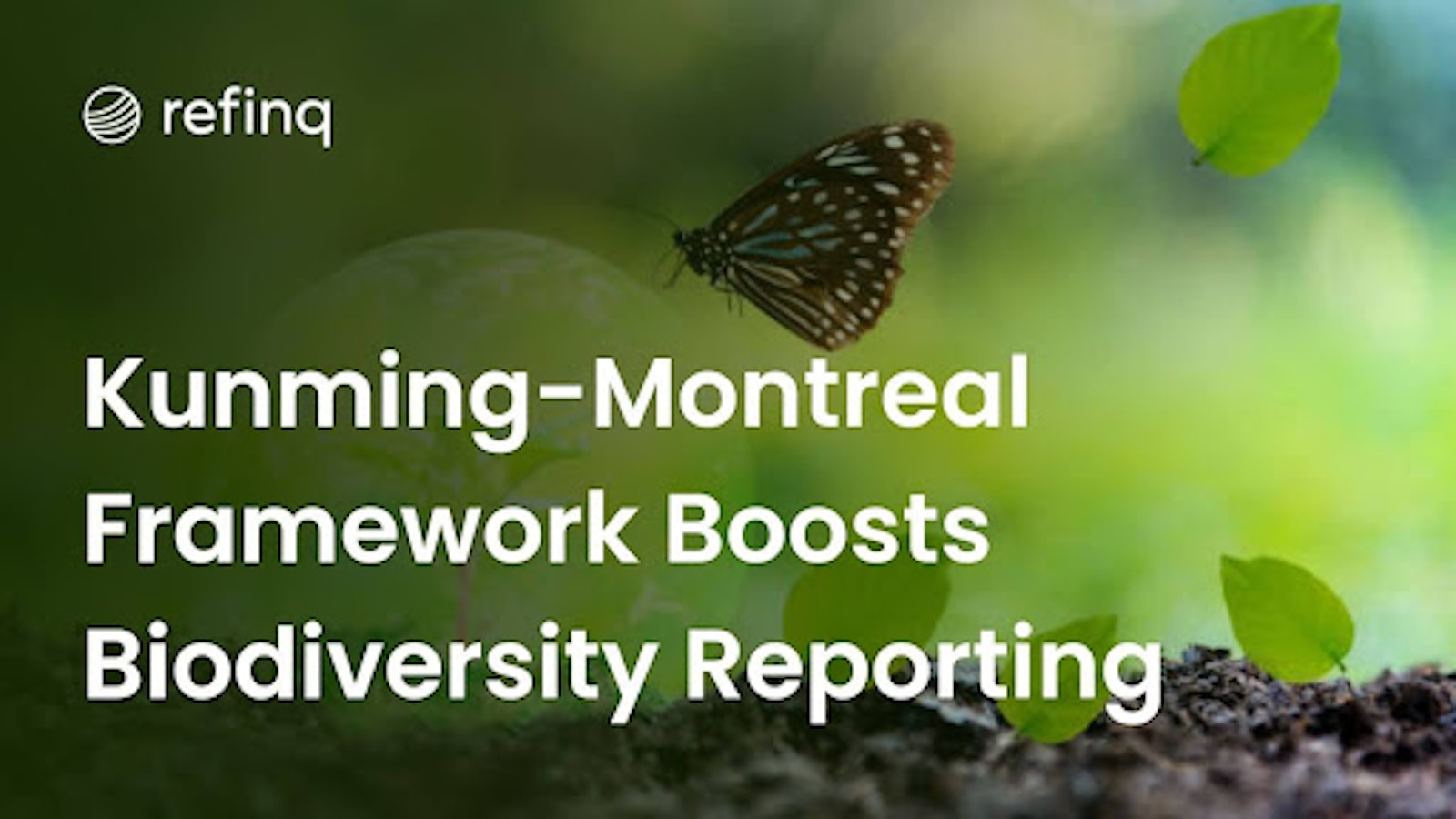

The Kunming-Montreal Global Biodiversity Framework (GBF) is reshaping biodiversity and climate risk reporting by offering a structured approach to address global environmental challenges. The framework has ambitious targets to reverse biodiversity loss and promote ecosystem sustainability by 2030. The GBF sets clear guidelines and targets, including the protection of 30% of the planet's land and marine areas by 2030, aiming to create a coordinated global response. UNCTAD’s insights on the GBF emphasize the framework’s potential to transform conservation efforts worldwide.
Enterprises looking to implement the GBF’s goals benefit significantly from platforms like refinq, a leading SaaS solution for climate and biodiversity risk assessments. refinq supports organizations in aligning their reporting with global sustainability standards through real-time data analysis and forecasts down to a 25-meter resolution. Its innovative features enable businesses to track biodiversity impacts and manage regulatory compliance, helping them to fulfill GBF-aligned objectives. Explore refinq’s biodiversity and climate solutions that provide actionable insights for meaningful environmental strategies.
The Kunming-Montreal GBF, established in 2022, is centered around reversing biodiversity loss while promoting sustainability. Its ambitious “30 by 30” target to conserve 30% of terrestrial and marine areas by 2030 underscores a commitment to protect vulnerable ecosystems. By setting specific metrics for biodiversity and climate risk, the framework provides a clear pathway for industries and governments to contribute to global conservation efforts, as outlined by IUCN’s overview of GBF's objectives.
The GBF encourages the use of advanced tools and technologies to better assess environmental impact. refinq aligns closely with these aims, offering cutting-edge solutions like footprinting and benchmarking for businesses to monitor and minimize their ecological impact. These tools help companies navigate biodiversity regulations and contribute to the framework’s targets through detailed, science-backed reporting.
Reporting on biodiversity and climate risks is evolving with the framework’s requirements, which demand highly detailed and adaptive insights. refinq addresses this need by processing over 2.5 billion data points using advanced geospatial analysis and machine learning. This high-resolution risk assessment is critical for industries to understand biodiversity risks with precision and to act accordingly. The importance of these tools is further explored in this study on biodiversity metrics, which aligns with refinq’s approach to biodiversity-positive reporting.
In addition to helping with impact measurement, refinq's due diligence solutions offer businesses a comprehensive approach to biodiversity risk management, enabling compliance with frameworks like the Corporate Sustainability Reporting Standard (CSRD) and the European Sustainability Reporting Standards (ESRS). This functionality ensures that organizations can prepare audit-ready reports aligned with GBF goals.
The importance of detailed, data-driven insights cannot be overstated when it comes to implementing the GBF’s guidelines. refinq’s portfolio impact assessment tools allow organizations to evaluate biodiversity risks within their investment portfolios, aligning with the GBF’s emphasis on sustainability. refinq’s analysis combines machine learning with climate and geospatial data to create actionable insights, helping companies develop proactive strategies for biodiversity conservation.
The process also involves “refueling” or the allocation of "gas" for transactional efficiency, supporting the execution of assessments across extensive data points. This capability, fundamental to refinq's operational model, is critical for providing fast, reliable data analyses, enabling organizations to act quickly and maintain compliance with biodiversity frameworks.
Refinq’s tools are also designed to support organizations in implementing nature-positive strategies by tracking biodiversity metrics in alignment with the Taskforce on Nature-related Financial Disclosures (TNFD) and Science-Based Targets Network (SBTN) standards. By offering benchmarking and footprinting assessments, refinq enables companies to systematically measure their environmental impact and assess progress toward the GBF’s objectives.
With stricter compliance expectations, refinq’s tools help companies meet the GBF's standards by providing reliable, actionable data. refinq’s due diligence solutions allow organizations to analyze biodiversity risks comprehensively before making investment decisions, particularly useful for industries where compliance is crucial. These tools help companies minimize risks related to regulatory and reputational concerns, supporting adherence to the GBF’s biodiversity and climate reporting standards.
refinq’s blog offers resources and insights on how to embed nature-positive strategies into business operations. Through comprehensive biodiversity and climate risk reporting, refinq equips organizations with the knowledge they need to meet GBF standards. This alignment with international reporting frameworks, such as the TNFD and the ESRS, ensures businesses can contribute to meaningful, long-term biodiversity conservation efforts.
The Kunming-Montreal Global Biodiversity Framework is a critical initiative for reversing biodiversity loss and mitigating climate risks. Tools like refinq make it easier for businesses to align with this framework, offering advanced analytics and comprehensive risk assessment capabilities. Through real-time data processing and transaction efficiency, refinq enables organizations to build sustainable strategies that align with GBF goals and contribute to biodiversity-positive outcomes.